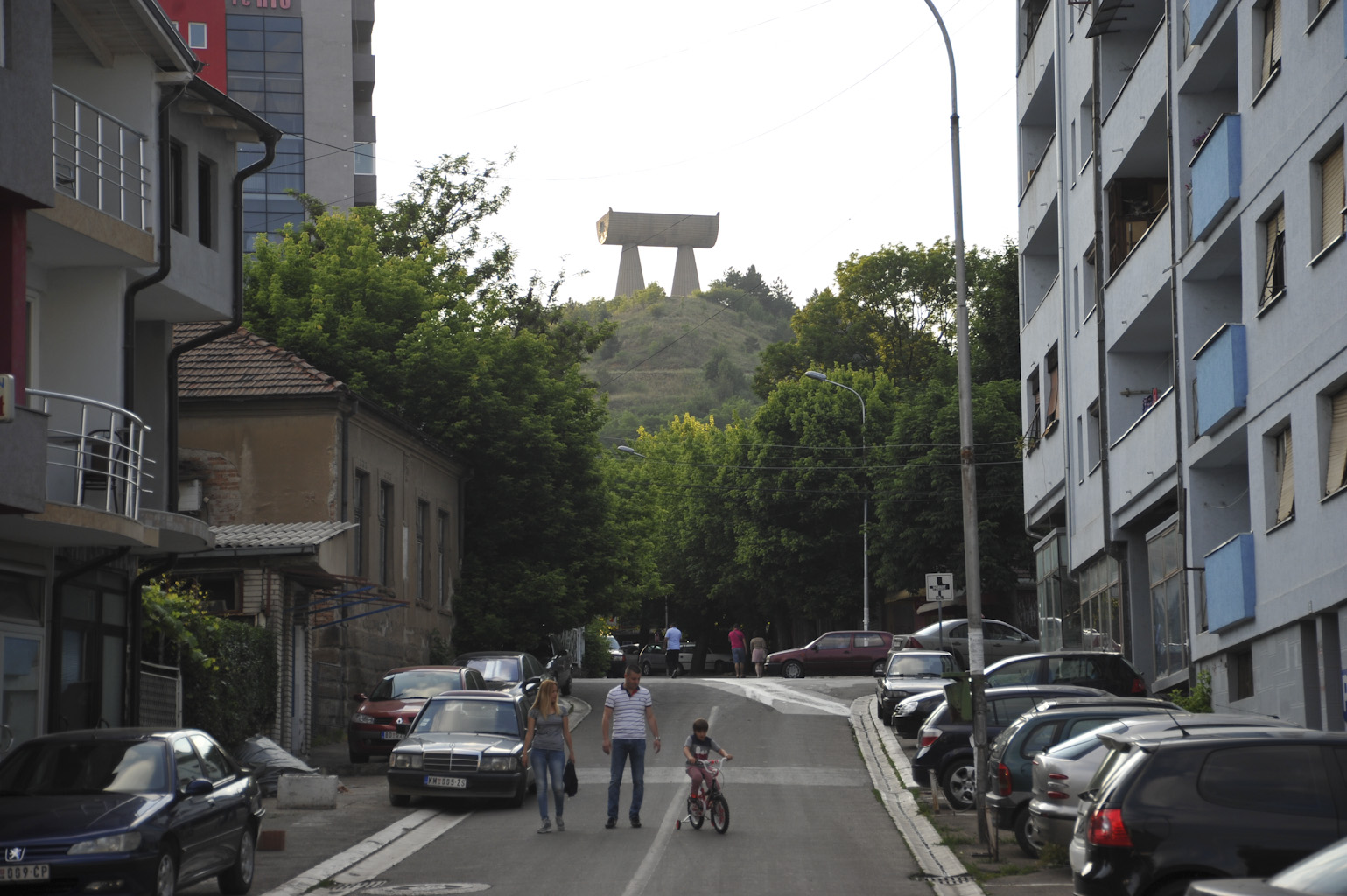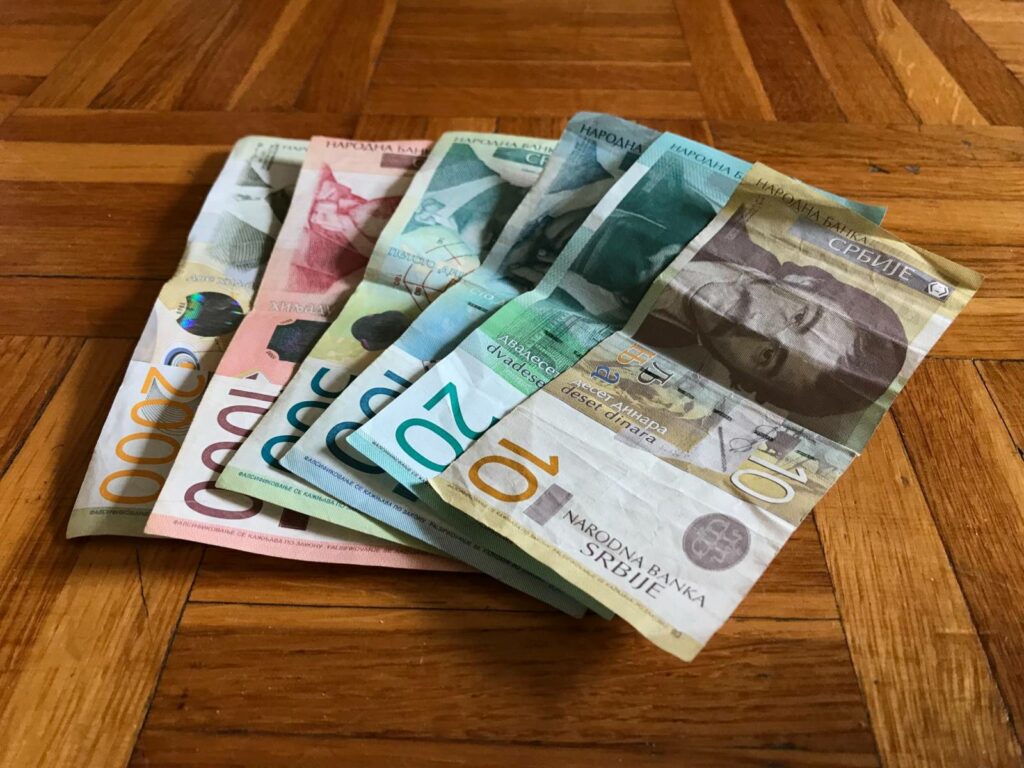Kosovo Serbs claim there is a lack of adequate information regarding the Kosovo Central Bank decision to regulate euro-only policy for transactions, considering it as an additional pressure as well as highly political.
Petar Dordevic, a resident from Serb-majority municipality of Gracanica, feels that Kosovo’s latest Central Bank policy for the use of euro as the only transaction currency will make life harder for his community.
“Local Serbs perceive this decision unfavorably, viewing it as detrimental. They feel marginalized and voiceless in the process,” Dordevic told Prishtina Insight, adding that “citizens were not adequately informed before the decision was made, exacerbating the sense of frustration and uncertainty”.
He explained that “younger Serbs, particularly those receiving salaries in dinars, have resorted to opening combined bank accounts to navigate the transition, but this poses challenges for the most vulnerable, such as retailers and disabled individuals, who have limitations in movement, technology and lack clear guidance”.
Several Kosovo Serbs Prishtina Insight talked to, who on a daily basis use Serbian dinar currency received from Serbia as pension, salaries, or aid, explained that the community in general is feeling marginalized and voiceless in the decision-making process regarding the new CBK regulation, which among others also regulates the Euro-only policy.
Kosovo has been using the euro since 2002, but Serb-majority municipalities, especially in the north, use both Serbian Dinars and Euros. A new regulation which aims to fight counterfeit money, that entered into force on February 1 despite the international community calls for postponement, caused confusion and uncertainty.
On Wednesday, Kosovo’s Minister for Communities and Returns, Nenad Rasic, said in a press conference after a meeting with Prime Minister Albin Kurti and CBK Governor Ahmet Ismaili that they “reached a conclusion that this is a transition period so the users will have the opportunity to prepare for using the regulation. From the legal and technical aspects, this is the right way to continue”.
Citizens feel “used” by political interests

North Mitrovica. | Photo: Atdhe Mulla
Kosovo Serbs are confused about the translation of Euro-only policy in their daily life while they simultaneously feel used by politics.
“This uncertainty has led to increased anxiety and panic among pensioners, evident in longer waiting times at post offices,” Dordevic from Gracanica told BIRN.
Dordevic deems this decision unnecessary and unjust towards the citizens of Kosovo. While adding that is skeptical that the reactions from QUINT countries and other Kosovo’s partners will prompt the government to reverse this decision.
“This decision not only destabilizes the financial stability of citizens but also jeopardizes essential services, such as healthcare and education, dependent on support from Serbia, guaranteed by the Brussels Agreement,” he further stated.
Kosovo’s Central Bank Governor, Ismaili, in an interview with “Kallxo Përnime” show on February 4, clarified that the Euro-only policy does not prevent Kosovo Serbs from holding and receiving dinars but regulates their import and conversion to counter illicit money flows from Serbia.
Ismaili claimed that only in 2023, over 200 million euros worth of Serbian dinars entered Kosovo from Serbia, via illegal routes and went to financial institutions not licensed by the Central Bank, mainly in Serb majority North of Kosovo. Ismaili insisted that no one is prohibited from keeping, converting, or accepting funds in dinars as long as everything is done via legal transactions.
In the Wednesday press conference, communities minister Rasic claimed that Ismaili “mentioned that the transition phase can end in late February, but again if there is readiness from the other side, because any timeline that we would mention now would be inaccurate”.
Rasic also added that “I want to tell everyone, especially the workers in those institutions, that this will not happen, because I have seen the firm position of the Prime Minister that they can continue their work”.
On February 1, 2024, Kosovo authorities began implementing the decision not to allow the import of money from unlicensed parties, adhering to a government pledge for a transitional period, allowing an undefined time for Kosovo Serbs to start using the Euro in their daily transactions.
The regulation aims to fight counterfeit money and reiterates: “The only currency allowed to be used for carrying out cash payment transactions and in the payment system in the Republic of Kosovo is the euro.”
“Other non-euro currencies can be used … only as valuables for safekeeping in physical form, or in bank accounts in non-euro currencies, for making international payments in non-euro currencies and for foreign exchange activities,” it adds.
Nonetheless, confusion regarding its concrete implementation prevails.
Dusan Radakovic, a member of the NGO Advocacy Centre for Democratic Culture, ACDC, stated that the dinar issue is a significant problem for citizens who rely on subsidies from Belgrade and sees it as pressure “and a decision that was made only for the reason of making life difficult for Serbs”.
“For the Serbian community, this is just a continuation of the pressures that have been going on for more than two years. Serbs in Kosovo have stayed and survived mostly because of the income that comes from Serbia,”
Similarly, Dordevic suggests that the Kosovo government “forgets its citizens, using them as pawns” and “leverage” in the negotiations with Serbia.
Moreover, according to Radakovic without the money that comes from Serbia “Serbian community is condemned to poverty, because unlike the Albanians, they have much fewer opportunities in Kosovo,” considering that few are employed in Kosovo companies, and when they are such as in Kosovo Energy Corporation, KEK, or the thermal power plant but “not a single Serb works in production, only a small number in electricity billing”.
Kosovo Serbs believe that the ban of payments in Dinar is just another Kosovo government violation against them.
Representatives of the Center for Peace and Tolerance (CPT), Radio Gorazhdevac/Gorazdevac, and other Serbian civil society organizations in Kosovo, on Thursday at a media conference, criticized the Government and the Minister of Internal Affairs, Xhelal Sveçla, regarding the recent actions of the Kosovo Police, which according to them “constitute blatant violations of media freedom and a direct attack on civil society.”
Darko Dimitrijevic, journalist from Radio Gorazhdec/Gorazdevac, in press conference in Prishtina, on Thursday, alongside other Serbian community representatives, accused Kosovo police of mistreatment when checking the offices of their media outlet on February 2, during a police raid that closed down Serbia-run offices functioning as parallel Kosovo municipalities.
“We saw a special unit that completely took over the square in Gorazhdec (village in Peja) and the raid on the offices started, which are in the House of Culture,” he said, describing the police having “long guns, ‘body armor,’”
“This lasted for 5 minutes, and then they left. I have a bitter impression after being threatened and not allowed to take photos or videos,” Dimitrijevic said.
“On top of that, some simultaneous populist and rude actions such is when a minister, or ministers disseminate video of their participation in destroying a billboard ( whatever it is) in a majority Serb area along with the triumphalistic messages just send extremely discouraging and disappointing messages to the remained Kosovo Serb population”, Kossev director, Tatjana Lazarevic stated.
No common ground

Serbian Dinar Photo: Milica Stojanovic | BIRN
The issue of not allowing payments in Dinars also highlights another daily problem that Kosovo and Serbia have not agreed upon, despite a more than a decade old EU mediated dialogue.
Lazarevic told Prishtina Insight that Serbs are unhappy, concerned, fearful even feeling that their wellbeing and everyday life is threatened by this regulation.
“Also dignity is hurt by the way the Regulation is done and supported by Kosovo authorities. They were neither communicated nor fairly approached by Pristina or Belgrade, except that in the case of the latter, it is not the side which issued the ban on dinars, but the one furthermore who provides their benefits”, Kossev director, Tatjana Lazarevic added.
According to her, the Kosovo Government, with such a hasty, uncommunicated decision towards its own citizens of Serbian origin has further pushed itself against the Kosovo Serbian community.
Kosovo Prime Minister Albin Kurti on Tuesday declared that the Central Bank’s regulation should not be interpreted as an attack on Serbian dinar.
Nonetheless, chairman of the Youth Council of Gracanica, Dusan Borisavljevic, also sees this regulation as constant pressure on Serbs in Kosovo, describing it as a tool to scare and demotivate them.
“This last decision of the Kosovo Central Bank is just one more tool that is used to further scare and demotivate Serbs living in Kosovo. This is something that is commonly said by people,” he stated.
According to him, the decision was unnecessary and will have a negative impact on the economic situation and relationships among people.
“This was not necessary at all, this decision will just have a negative impact on the already bad economical situation in Kosovo but also furthermore divide people and fuel the already huge emigration problem of young people,” he added further.
The OSCE, EU, and the US have separately called on Kosovo to refrain from unilateral actions affecting the Serbian community to avoid escalating tensions, requesting time for the implementation of a euro-only policy for Kosovo Serbs.
Human rights activist from Kosovo, Mila Mihajlovic told Prishtina Insight that due to the recent political decisions made regarding this issue, neither the reactions or opinions have been positive.
“The currency has been used in all types of settings where use of finances has been mandatory, such as banks, post offices, markets, coffee shops, etc. The speediness of the decision has influenced the negative impressions from the Serbian community overall, but this isn’t where the issue comes to an end”, Mila Mihajlovic stated.
Mihajlovic said that “the point of Serbian Dinar currency being prohibited for use also impacts increase of interethnic tensions, which isn’t a preferable solution”.
“24 years after the conflict, what represents a primary concern isn’t the usage of Dinar, but the fact that Serbia and Kosovo can’t find common ground for establishing peace or moderating a dialogue that will benefit both sides and their citizens,” she highlighted.





